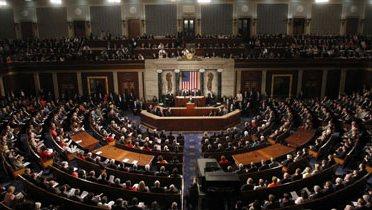Conservative critics, gloomy after their candidate’s defeat, argue that President Obama, despite his impressive win in a struggling economy, has no mandate. That is nonsense. The president has a mandate, or, what former President George W. Bush referred to as “political capital,” to lead the way toward a political reconciliation over the nation’s impending fiscal cliff negotiations—and to do so now, while the glow of his victory still glitters in the political sunrise. No one else can lead, and no one else should lead.
In a way unique to Oval Office occupants, who have run their last political campaign, freshly liberated from normal political constraints, President Obama can now embark on this urgent task by dramatically widening the circle of his inner cabinet and inviting prominent Republicans to join it and, in this way, help him reach an unprecedented bipartisan compromise in the best interests of the country. One such Republican is Mitt Romney, the man he just beat. Though technically the head of his party, Romney is now a man without a job but a man who was, only a few days ago, close to being President-elect. Why not appoint Romney to replace Tim Geithner as Secretary of the Treasury?
This is not so wild an idea, though I can imagine, as you can, the obvious pitfalls. He has major disagreements with the president on economic policy, and he may yet dream about another run for the top job. In addition, Obama may already have promised the job to someone else.
But, if words still have meaning, and if the president remains fixed on striking a major deal before dreaded sequestration sinks its claws into the American economy, Obama is now in a position to make a bold move. The stage, in fact, is set.
When Romney delivered his concession speech, he congratulated the president in an interesting way. Not “congratulations,” with a tip of the hat, and “goodbye,” slipping into the darkness. Romney expressed his love of country in a deep, moving tones, all but asking, perhaps hoping, for another chance to help. When Obama spoke, moments later, he made a special point of stressing the Romney family’s dedication to public service and then, in a broader context, took pride in a political system that prized passionate and powerful differences of opinion. He added, meaningfully, that he had invited Romney to the White House “to talk about where we can work together to move this country forward.”
The following is fanciful, I admit, but stranger things have happened in American political history: Obama, when setting up the Romney meeting, makes certain that Ann Romney is also invited, and suggests they both stay at Blair House. A “reconciliation dinner” is arranged for the same day, and all major Republican and Democratic members of Congress are invited. (Something the president ought to do in any case.) Network cameras are allowed to cover the after-dinner speeches. Obama clearly extends an olive branch, and asks Romney to respond. Both stress the need for compromise, which Speaker Boehner recently embraced while offering his own version. The following morning, in private to avoid any possible embarrassment, the president offers Romney the job. The president makes clear that he is also offering other prominent Republicans important jobs in his transformed Cabinet.
This is a special time in America. A president has been re-elected, and the nation is heading toward a self-generated fiscal crisis, one that is real and frightening. Something dramatic, bold, imaginative, no-nonsense must be done. This is one idea. If you have something better, let’s hear it. But let’s get moving.






Commentary
An Overture to Romney
November 8, 2012